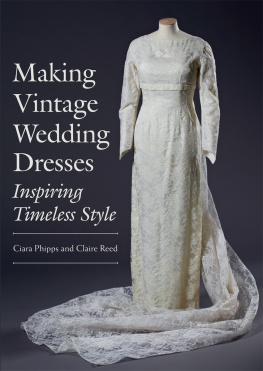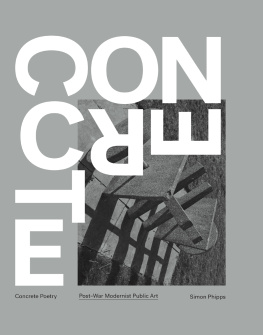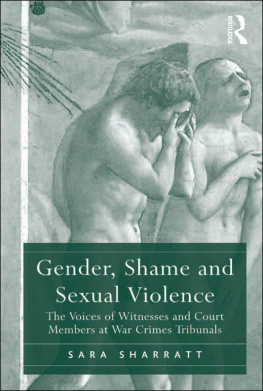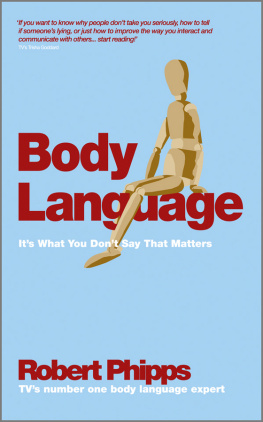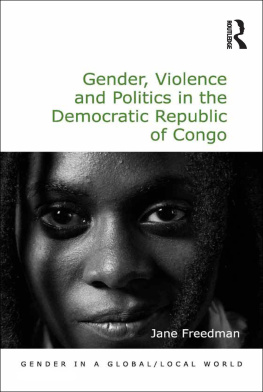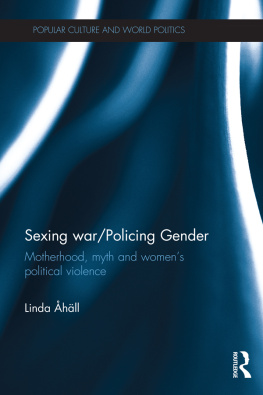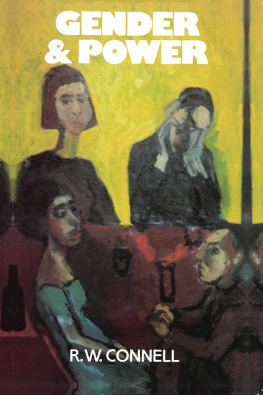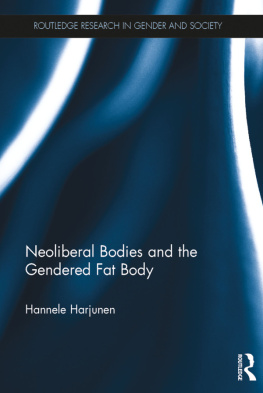The Politics of the Body
The Politics of the Body
Gender in a Neoliberal and Neoconservative Age
ALISON PHIPPS
polity
Copyright Alison Phipps 2014
The right of Alison Phipps to be identified as Author of this Work has been asserted in accordance with the UK Copyright, Designs and Patents Act 1988.
First published in 2014 by Polity Press
Polity Press
65 Bridge Street
Cambridge CB2 1UR, UK
Polity Press
350 Main Street
Malden, MA 02148, USA
All rights reserved. Except for the quotation of short passages for the purpose of criticism and review, no part of this publication may be reproduced, stored in a retrieval system, or transmitted, in any form or by any means, electronic, mechanical, photocopying, recording or otherwise, without the prior permission of the publisher.
ISBN-13: 978-0-7456-8276-1
A catalogue record for this book is available from the British Library.
The publisher has used its best endeavours to ensure that the URLs for external websites referred to in this book are correct and active at the time of going to press. However, the publisher has no responsibility for the websites and can make no guarantee that a site will remain live or that the content is or will remain appropriate.
Every effort has been made to trace all copyright holders, but if any have been inadvertently overlooked the publisher will be pleased to include any necessary credits in any subsequent reprint or edition.
For further information on Polity, visit our website: www.politybooks.com
Contents
Acknowledgments
This book could not have been written without the help of my partner Jan Selby, who has provided practical assistance, emotional support and an intellectual sounding board which is second to none. I count myself incredibly lucky to have so much to say to, and so much respect for, my partner in life: being in a relationship with him has helped me to tackle this ambitious project. I am also deeply grateful to my colleagues and friends Trishima Mitra-Kahn and Margaretta Jolly and the anonymous Polity reviewers for their feedback on various drafts of the manuscript, to Jonathan Skerrett from Polity Press, who has been enthusiastic and supportive throughout, and to Gail Ferguson for her thorough and rapid editing.
This book is dedicated to two people: first, my friend Lisa Smirl, who passed away at the age of 37 in February 2013. Her courage, grace and humanity in the face of an incredibly aggressive terminal cancer which cut short her own promising academic career left me in awe, and inspired me to be truer to myself in work and in life. Second, I dedicate this volume to my daughter Caitlin Phipps Selby, born in September 2010, who has brought me more joy than I could ever have anticipated. I hope that, by the time she is grown, some of the debates covered here will have moved on in positive ways, and the feminist movement in particular will have found a way to negotiate a fraught and difficult macro-political context. Judging from the passion, thoughtfulness and good grace shown by so many of my feminist students (of all genders), I have great hopes that this will be the case. I would like to thank my students for being the biggest pleasure of my working life, and give especial thanks to Tom Chadwick who provided me with valuable research assistance for this book. Any errors or omissions in the text are solely my responsibility.
Introduction
In the summer of 2010, I was heavily pregnant with my first child. One early evening, as the nights were drawing in, my partner and I attended a barbecue organized by neighbours in Brighton: the predictably cosmopolitan, left-leaning crowd. One couple in particular, directors of a local alternative theatre company, talked us through the home water birth of their third baby, which they had celebrated the previous year. As I shared anxieties about my own impending delivery, the experienced father provided reassurance and various tips on how to deal with the pain without resorting to drugs or epidural anaesthesia. Giving birth should come naturally to women, he said it was something we had all been designed to do. Furthermore, it was a process which would put me in touch with my strength and my powerful, primal self. My partner, understandably, wanted to know what he ought to do while I was undergoing this transformative experience. You protect the door of the cave, he was told. The incident gave us much to talk about in terms of the juxtaposition between an unapologetically biologically essentialist narrative and its otherwise unconventional source. Although this book is not a personal one, it has been inspired by experiences such as this, which led me to want to explore the
I began this research in 2008 after a discussion in one of my postgraduate feminist theory classes. The episode inspired me to reflect upon the difficulties of positioning for contemporary feminist theory and activism in a political context characterized by binaries and extremes and in which womens bodies have become battlegrounds both material and symbolic. In class, an Iranian student, who had chosen not to adopt the chador, was presenting her view of practices of veiling in her country as essentially oppressive and a reflection of a patriarchal value system. The room was silent while she spoke, in deference to her first-hand experience and also highlighting the discomfort many western students feel around voicing opinions about politically loaded topics in Othered cultures. However, before her narrative was finished, she was interrupted by a white European student, who had come top of the class in the previous terms feminist theory assignment and who gently explained to her Iranian colleague the empowerment she felt could be granted and expressed through the choice to cover ones face, body and/or hair. This incident was fascinating in its reversal of the usual problematic between feminists from the West and women from Muslim-majority societies. It spoke to potential shifts in the political and academic landscape in the West which I felt needed to be set in a broader context.
I chose to focus my research on four contemporary western debates centred on womens bodies which have been marked by controversy and contention: sexual violence, gender and Islam, sex work, and childbirth and breastfeeding. During the course of a number of years embedded in the fields of literature, media and politics around these issues, I found much experiential material which provided alternative stories to those narrated above. As any ethnographer knows, the arena of human feeling, thought and action will always be full of diversity, multiplicity and contradiction. However, as I began to follow different threads and piece together the web of discourses and power relations which constitute contemporary orthodoxies around the issues in question, a number of important common themes started to emerge. Some were highlighted in existing research, and others emerged as I trawled through a huge variety of primary sources policy documents and reports, newspapers, magazines, novels, blogs and other media and conducted informal interviews with key official and unofficial political actors. As I worked, I found myself asking difficult questions: how, in the same period, have left-wingers, academics and other political progressives simultaneously defended powerful men accused of sex crimes, been critiqued for ignoring honour killings and other culture-based forms of gender violence, positioned topless tabloid pictures as empowering, and opposed these same pictures for sexualizing breasts and undermining the breastfeeding which is an essential part of natural motherhood? Exploring these pointed me each time to the same common factor: the contemporary political and economic coalition of neoliberalism and neoconservatism which has put opposition movements very much on the defensive. This, I found, has posed particular dilemmas for feminism, which is currently enjoying a resurgence but has perhaps never operated in a more difficult political and cultural milieu.


